Deeply rooted in the history of English evangelicalism and the culture of the Lake District, the Keswick Convention is celebrating its 150th birthday this summer. Heather Tomlinson considers the impact of this free three-week Christian event
Keswick Convention is unique. Unlike nearly all other large Christian festivals, it remains entirely free for the estimated 10,000 adults who enter its large tent and listen to the all-day worship and Bible teaching during July and August each year. No tickets, no guarded gates with plastic wristbands, no ‘early bird discounts’. Of course, it asks for donations – the £1m cost of putting on the event must be met – but the organisers live by faith that the necessary funds will be provided.
“We want the Convention to be accessible to everyone and as such, the event is completely free to attend with no registration for adults,” says a spokesperson. “This means we are dependent on God’s provision through his people to keep the event running.
“This contributes to our value of being ‘All One in Christ Jesus’. We are incredibly grateful to God for the way we have seen his hand at work.”
Another unique aspect of Keswick is how the Christian festival depends on the hospitality of its quaint Cumbrian home. While there are low-cost campsites available, most visitors descend on the umpteen hotels and bed and breakfasts in the town. Hoteliers are usually more accustomed to people arriving in walking boots and waterproofs intending to explore the beautiful sights of the surrounding Lake District. That said, many Convention visitors are attracted to the outdoor activities as well as the Christian fellowship, meaning many miles are hiked as well as Bible talks attended.
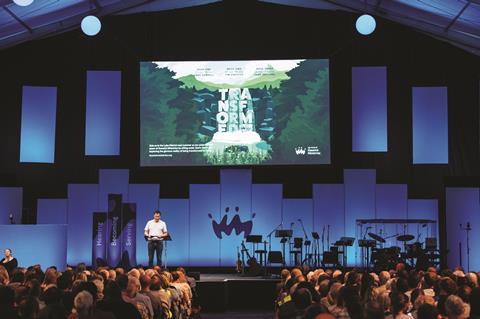
Keswick Convention celebrates its 150th birthday this month. The event has been around for so long that some families have attended generationally. Over the decades, many missionaries and Christian leaders traced their calling back to a visit to Keswick, including Amy Carmichael (see below). Watkin Roberts, the Welsh missionary, felt called to northern India at the 1907 convention – and reportedly met his wife, Gladys, at the 1914 event. Dr Helen Roseveare first heard a call to mission at the 1946 Convention, before later serving as a medical missionary in what is now the Democratic Republic of Congo.
Fifty years ago, Keswick’s centenary was marked by a visit from one of the most well-known evangelists of all time, Billy Graham. Many other notable Bible teachers have also spoken there through the years.
Early days
Keswick Convention had humble beginnings. A local vicar, Canon Thomas Harford-Battersby, had experienced his own personal renewal at a Christian event further south. “Christ was revealed to me so powerfully and sweetly as the present saviour in his all sufficiency,” he said. “I found he was all I wanted: I shall never forget it…How it humbled me and what peace it brought.”
Canon Harford-Battersby wanted to share this revelation with others and so put up a tent on his back lawn in 1875, drawing several hundred people over one week in late June. It became an annual event and, in 1901, the first marquee was erected on Skiddaw Street – which remained the Convention site until 2021, although there was also considerable expansion into local churches and other venues over the years to accommodate the growing number of visitors.
Many missionaries and Christian leaders can trace their calling back to a visit to Keswick
The Convention took place over one week each year until 1969 when it added an extra week to expand; the third was added in 2001. The Convention is now based at the Pencil Factory, for which it finished raising the required £8m in 2023. This substantial investment brought the youthwork and various streams together into one location. The building also serves as a conference centre when not in use by the Convention, used by organisations such as the NHS and local council.
Although all weeks include the Keswick staples of worship, Bible teaching and a focus on mission, each one has also developed its own flavour, complete with different speakers and programmes. Week one has a focus on visitors with learning disabilities and also has many visitors from Scotland, where schools break up earlier than in England. In week three ‘Keswick Unconventional’ celebrates Christian artists and creatives.
Keswickianism
Along with the children’s and youth events and modern worship bands, the Convention today has a more modern vibe than its historic Victorian roots.
Nevertheless, to know Keswick’s history is to understand the development of evangelicalism in the UK. Harford-Battersby was much influenced by the ‘higher life’ movement that was popular in the US and UK in the 19th century. It taught that a person could become sinless if they lived in union with Christ and surrendered themselves fully to the power of the Holy Spirit. Also known as the ‘holiness movement’, this theological perspective was so associated with the festival that it even became known as ‘Keswickianism’ and had an enormous influence on the evangelical Church in the West.
This emphasis is reflected in the very first Convention programme, titled: “Three days union meeting for the promotion of practical holiness.” It continued: “Many, we are sure, are everywhere thirsting for a deeper draught of the water of life, and anxiously enquiring how they may be brought to enjoy more of the divine presence in their daily life, and a fuller manifestation of the Holy Spirit’s power, whether in subduing the lusts of the flesh, or in enabling them to offer more effective service to their God.”
The holiness movement had roots in John Wesley’s teaching, but figures associated with it include influential preachers such as Charles Finney, FB Meyer, RA Torrey, DL Moody and Andrew Murray. It was promoted through literature such as William Boardman’s 1858 book, The Higher Christian Life, and Hannah Whitehall Smith’s 1875 book, The Christian’s Secret of a Happy Life. Although less in favour today, this kind of theology is still debated and discussed.
Does Keswick still hold to Keswickianism? In keeping with the trends of conservative evangelicalism, the Convention is today most associated with mainstream Reformed theology. This has been the case since another of its famous speakers, the late Anglican vicar John Stott, spoke there in 1965, perhaps influenced by JI Packer’s stern arguments against ‘higher life’ theology in the previous decade.
“1965 was a seminal year for the Convention because John Stott reframed our understanding of what holiness looked like,” says a spokesperson. “Some early Keswick speakers promoted a ‘higher life’ theology, which at times implied that complete victory over sin was possible. Preaching from Romans 6, Stott taught that being ‘dead to sin’ does not mean we no longer feel the pull of sin. Rather we died to sin in the same way Jesus did – his death paid sin’s penalty. The death sentence we deserved has been paid by Christ, and through our union with him, sin no longer has authority over us. Our old life is finished, and a new one has begun. We still feel – and at times give in to – the influence of sin so, for now, perfection isn’t possible but growth in holiness is.
“Stott’s teaching was not a new idea but rather a return to Reformation thinking. And although there was a change in emphasis post-1965, the desire to have a powerful encounter with God through his word and become like his Son remains just as strong today.”
Perhaps this year’s theme, ‘Transformed’, is in keeping with the traditions of the festival of seeking the power of Christ for real change in our lives. With noted Reformed evangelical preachers such as Tim Chester, Sam Allberry and Sinclair Ferguson, Stott’s legacy clearly lives on.
Amy Carmichael
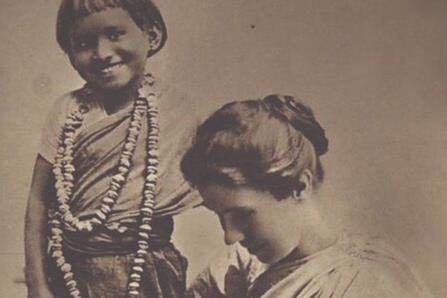
The trailblazing missionary is one of Keswick’s best-known fruits
The young Amy Carmichael was brought up in a devout home. Her parents planted a church and her early life was spent serving the factory workers of Belfast and Manchester.
At Keswick Convention’s first ‘missionary meeting’ in 1888, Hudson Taylor, the respected missionary to China, was invited to speak. Carmichael was in the audience and, on listening to Taylor’s experiences, decided that overseas mission was her own calling. She had a number of setbacks due to health but, in March 1893, she sailed to Japan. She worked there for 15 months before travelling to India, the country with which she is most associated. She remained there until her death in 1951.
Carmichael opened her doors to abandoned children – particularly those forced into temple prostitution, which was eventually banned in India but still exists in some forms.
She was a prolific writer and founded the Dohnavur Fellowship in south India, which would eventually house a hospital as well as other services to the poor.
Carmichael was an early adopter of culturally sensitive mission, instructing her volunteers to dress in Indian clothes, and giving the orphaned children traditional Indian names.
From the Lakes to the nations
One contemporary Christian leader both influenced by and an influence on Keswick has been Jonathan Lamb, who first visited as a student in 1972. He sensed the call to mission when he returned the following year, and has been closely involved with both Keswick and Langham Preaching since – including a season as the Convention’s chief executive. “I responded to the call to be ready to serve the Lord wherever he called me, and this was a significant turning point that led me into a lifetime of service in the local church and in various global Christian agencies,” he told Premier Christianity.
Unlike nearly all other large Christian festivals, Keswick remains entirely free
Now, as minister-at-large, Lamb supports Keswick’s many offshoots – small conferences held all over the world, from Hungary to South Africa and Japan to Uganda. But it is Keswick’s commitment to mission and sharing God’s word that enthuses him. “One year, a remarkable 550 young people indicated their willingness to take the call to mission seriously,” he says. “And, more recently, it was stated by a significant denominational mission organisation in Australia that 80-85 per cent of its workers heard their call to the mission field through attending one of our sister conventions, the Belgrave Heights Convention, in Melbourne. All of this is hugely encouraging, and only eternity will reveal the impact.”
Though its influence has spread abroad, the convention remains is firmly rooted in the north of England – a contrast to most large evangelical festivals, which take place in the south of the country. This makes Keswick the only home for many northern Christians, who often feel neglected by the Christian events and festivals that are typically many hours’ drive away.
While moving with some of the trends of the past 15 decades, Keswick retains its distinctive mission that has lived on since its early days. At a time when young adults are showing considerable interest in more historically rooted and traditional forms of Christianity, might they become the future of the Keswick Convention?
Keswick Convention takes place every July and August. This year’s theme is ‘Transformed’. For more information visit keswickministries.org















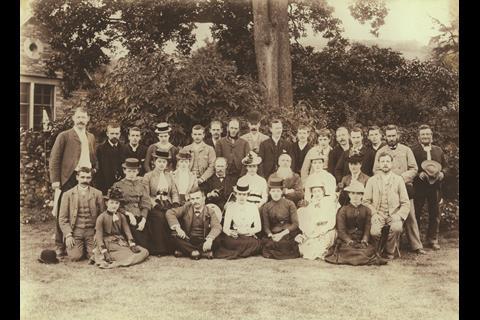
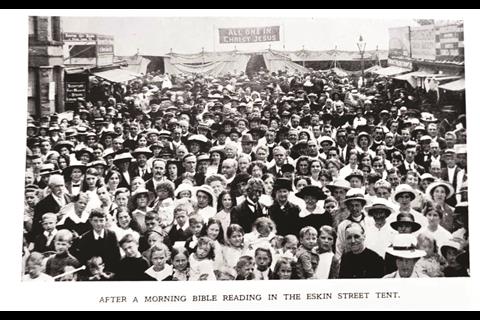
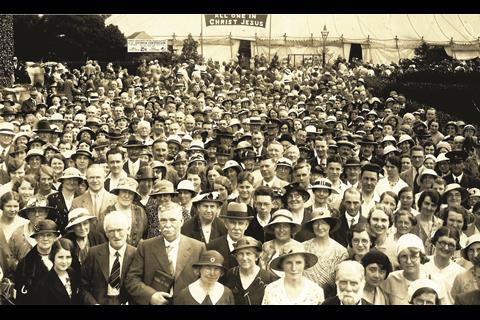
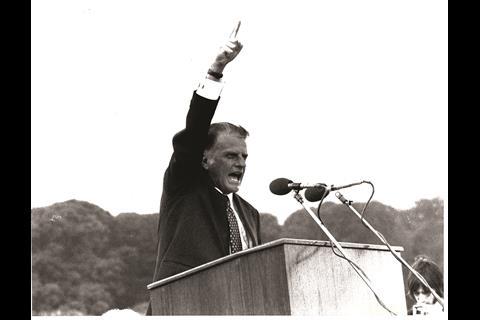
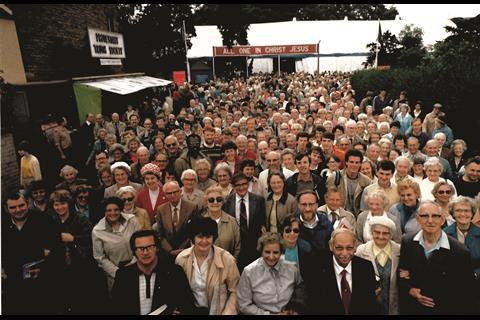
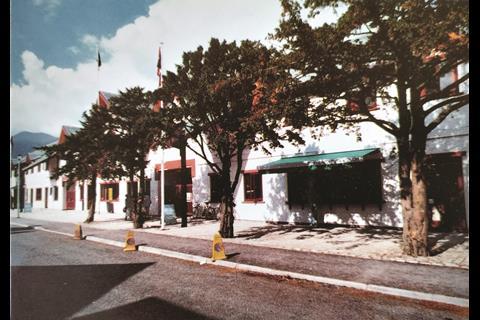

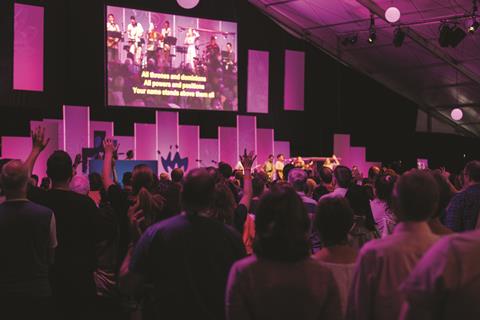


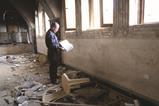





















No comments yet